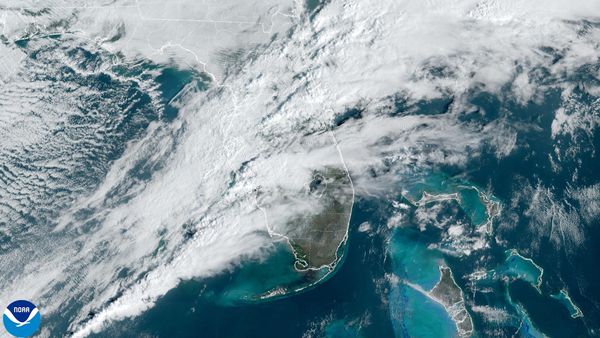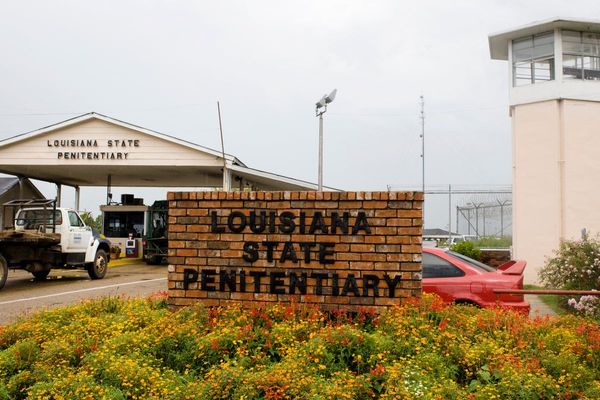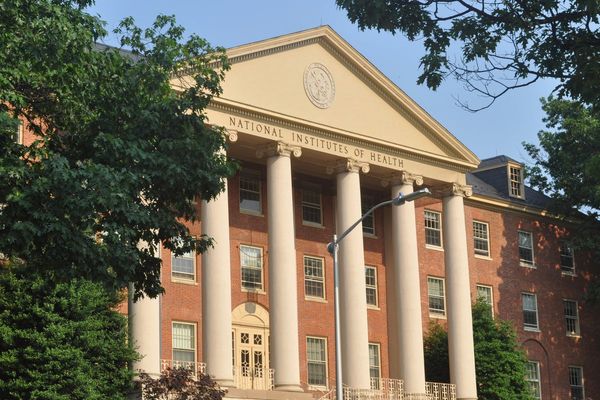
The deputy prime minister, Barnaby Joyce, has dissolved the national advisory body established less than two years ago to scrutinise major water projects.
This came after an expert member of the body, Stuart Khan, expressed concern, in letters to other members, that the government’s funding announcements to build dams had been made for “brazenly political purposes” and without the advisory body having been given an opportunity to consider the proposals. There is no indication Joyce was aware of the letters or that they played any role in the decision.
Guardian Australia revealed last week that the National Water Grid Advisory Body – established by Joyce’s predecessor, Michael McCormack – was not consulted before the announcement of $5.9bn in funding to build the Urannah and Hells Gates dams in north Queensland.
Members of the expert advisory body were told Wednesday morning that the panel would now be disbanded.
A spokesperson for Joyce said the body “was never intended to be ongoing and now is an appropriate time for it to conclude its work”.
“The National Water Grid Advisory Body has met the objectives set for it when it was established in August 2020,” the spokesperson said.
“The advisory body has provided independent advice to the government on water infrastructure, using the world’s best science to support the work of the National Water Grid Authority. This advice and the science underpinning it has helped inform the government’s decisions on water infrastructure projects.”
The decision comes amid scrutiny of the government’s decision to fund several dam projects – including committing money to projects that lack detailed business cases – in Nationals seats in both New South Wales and Queensland.
Guardian Australia has obtained letters sent by Khan, a University of NSW water engineering expert appointed to the body, to other members of the expert panel.
In those letters, Khan outlines concerns about government commitments to fund several dam projects. These include the proposed Dungowan Dam and the Wyangala Dam wall raising in NSW, and the Urannah Dam in Queensland.
Nationals MPs George Christensen and Michelle Landry – who represent bellwether Queensland electorates – have been openly campaigning for the Urannah Dam to be built.
Joyce announced a $500m federal contribution for Urannah earlier this month. The proponent for the Uranah project last week said it had recently completed a detailed business case, although the Guardian understands it had not been seen by the advisory board.
After the announcement, Khan wrote to the advisory body to outline concerns that they had not been consulted or sent a business case.
“It is my strong opinion that the Australian government should wait for the outcomes of this significant public investment in the development of the detailed business case before committing public funds to the construction of the dam,” Khan said.
“Responsible management of Australia’s water resources is of enormous importance in a country prone to extreme drought and extreme floods.
“Water infrastructure investment decisions are far too important, with far too many consequences, to be used for brazenly political purposes in the lead-up to an election.
“It is apparent that the Commonwealth commitment to funding it is being used as a device intended to extract political benefit.”
Guardian Australia has previously reported that Dungowan has no business case or environmental approval, and has already doubled in cost; the Wyangala dam wall raising have also been hit by a massive cost blowout.
In a letter from August last year, Khan said he had concerns regarding the planning for the NSW projects; he said the advisory body should oppose any additional federal government contributions to cover cost increases for Dungowan or Wyangala, until business cases could be properly scrutinised.
“While these may all prove to be worthy investments of public funds, there are several current public concerns of which the National Water Grid advisory body should be aware,” Khan wrote.
“Given the significantly increased estimate costs for the Dungowan dam and Wyangala dam projects, there may be some prospect that additional contributions may be requested from the Commonwealth government.
“If that is the case, I believe the advisory body should advise against any further commonwealth government funding for either of these projects until a completed business case is provided.”
A spokesperson from Joyce said the government has announced funding – “guided by the National Water Grid Investment Framework” – for projects “that will deliver water security, create jobs and drive economic growth”.
“In some instances, funding is subject to the completion of a business case, demonstration of value for money and sufficient public benefit for investment,” the spokesperson said.
Asked for comment on Wednesday about the dissolution of the advisory board, Khan said the National Water Initiative – an agreement between the federal and state governments – had set out an agenda for responsible and sustainable water management in Australia.
“The key principles include ensuring basic financial viability and environmental sustainability prior to committing to funding major infrastructure projects. These principles are essential to ensure sustainable management of Australia’s most valuable resource.
“But it is extremely disheartening to see the disregard that current governments have for the [initiative] and its principles.
“A renewed NWI, getting Australian governments back on track for sustainable water management, should be at the top of the agenda for any future commonwealth government.”







